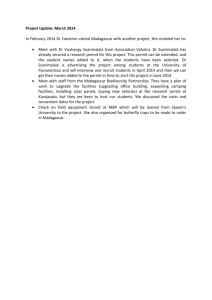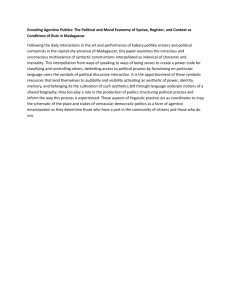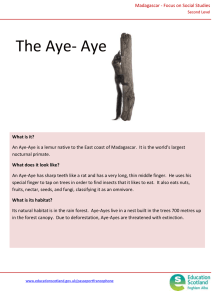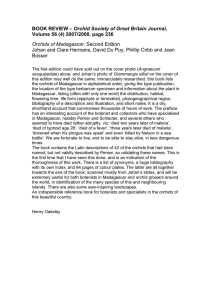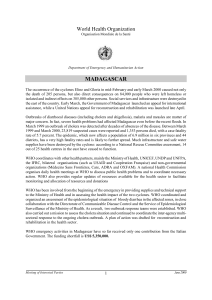ADVANCE QUESTIONS TO MADAGASCAR BELGIUM
advertisement
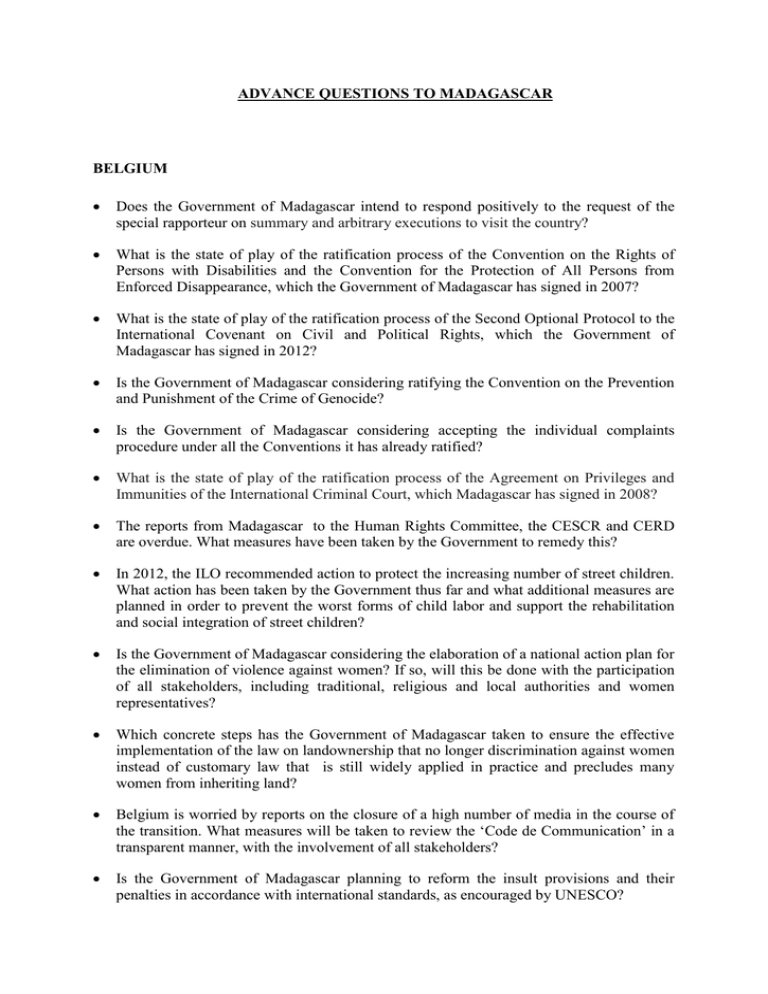
ADVANCE QUESTIONS TO MADAGASCAR BELGIUM Does the Government of Madagascar intend to respond positively to the request of the special rapporteur on summary and arbitrary executions to visit the country? What is the state of play of the ratification process of the Convention on the Rights of Persons with Disabilities and the Convention for the Protection of All Persons from Enforced Disappearance, which the Government of Madagascar has signed in 2007? What is the state of play of the ratification process of the Second Optional Protocol to the International Covenant on Civil and Political Rights, which the Government of Madagascar has signed in 2012? Is the Government of Madagascar considering ratifying the Convention on the Prevention and Punishment of the Crime of Genocide? Is the Government of Madagascar considering accepting the individual complaints procedure under all the Conventions it has already ratified? What is the state of play of the ratification process of the Agreement on Privileges and Immunities of the International Criminal Court, which Madagascar has signed in 2008? The reports from Madagascar to the Human Rights Committee, the CESCR and CERD are overdue. What measures have been taken by the Government to remedy this? In 2012, the ILO recommended action to protect the increasing number of street children. What action has been taken by the Government thus far and what additional measures are planned in order to prevent the worst forms of child labor and support the rehabilitation and social integration of street children? Is the Government of Madagascar considering the elaboration of a national action plan for the elimination of violence against women? If so, will this be done with the participation of all stakeholders, including traditional, religious and local authorities and women representatives? Which concrete steps has the Government of Madagascar taken to ensure the effective implementation of the law on landownership that no longer discrimination against women instead of customary law that is still widely applied in practice and precludes many women from inheriting land? Belgium is worried by reports on the closure of a high number of media in the course of the transition. What measures will be taken to review the ‘Code de Communication’ in a transparent manner, with the involvement of all stakeholders? Is the Government of Madagascar planning to reform the insult provisions and their penalties in accordance with international standards, as encouraged by UNESCO? NETHERLANDS In what way does the Malagasy government monitor the results of its efforts to combat poverty and the economic dependence of women? What further measures will the Malagasy government take to combat human trafficking and sex tourism, including raising public awareness? How does the Government assess the effectiveness of the measures already taken on this issue? Which concrete measures does the government intend to implement in order to respect its commitment to ensure qualitative, accessible and free education for all children, especially in the framework of the Interim Education Plan for 2013-2015? There are international concerns about the freedom of expression in Madagascar, including internet freedom. What measures is the government taking to improve the situation, i.e. to guarantee that journalists may freely carry out their work? UNITED STATES OF AMERICA We commend Madagascar for the 2013 elections, the country’s first democratic election since the 2009 coup d’état. However, we remain concerned about Madagascar’s weak rule of law, high levels of corruption, and security force abuses. 1. What reforms are currently being undertaken by the government to address problems in the judiciary? 2. What concrete steps is the government taking to investigate and prosecute members of the security forces that commit human rights abuses or violations? We remain concerned about Madagascar’s gaps in law and in practice regarding discrimination against certain types of workers, including women, workers in the export processing zone (EPZs), and domestic workers. 3. What steps has the government taken to ensure that men and women have equal access to employment, particularly in EPZs, and to prevent exploitation and abuse in EPZs and in domestic services? What steps, if any, has the government taken to bring the Labor Code and the Civil Service Regulations and Provisions in line with the ILO Convention concerning Discrimination in Respect of Employment and Occupation (Convention No. 111)? We also remain concerned that children in Madagascar continue to be engaged in the worst forms of child labor (WFCL), particularly in hazardous forms of agriculture and mining. 4. What steps has the government taken to implement Madagascar’s child labor policies and laws to combat the WFCL?
